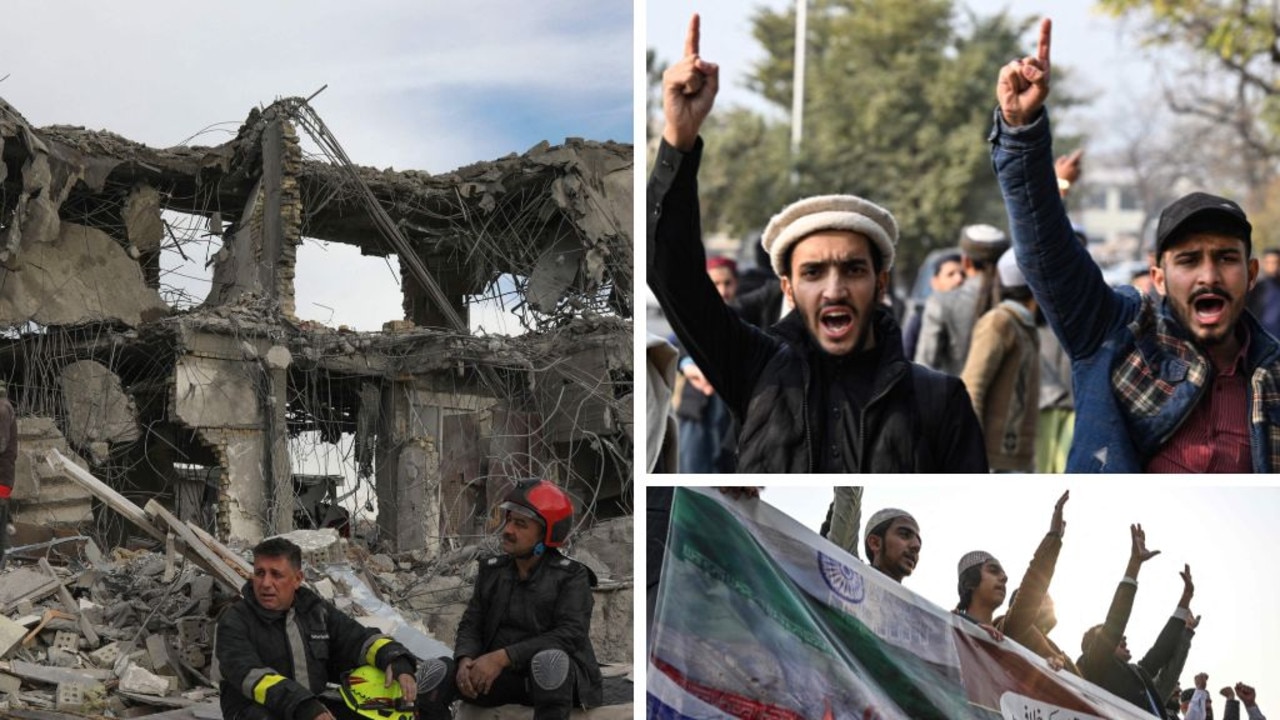[ad_1] Pakistan launched deadly strikes Thursday against militant targets in Iran in apparent retaliation for Iranian air raids on its territory, fu
[ad_1]
Pakistan launched deadly strikes Thursday against militant targets in Iran in apparent retaliation for Iranian air raids on its territory, further stoking tensions and prompting Tehran to summon Pakistan’s envoy.
Nine people, including three women and four children, were killed in the Pakistani strikes in restive Sistan-Baluchistan province, according to Iran’s IRNA news agency.
It came just two days after Iran conducted strikes against what it described as “terrorist” targets in neighbouring Pakistan, killing at least two children.
While Iran and nuclear-armed Pakistan often accuse each other of allowing militants to operate from the other’s territory to launch attacks, it is rare that official forces on either side engage.
Pakistan’s foreign ministry described Thursday’s raids as a “series of highly co-ordinated and specifically targeted precision military strikes against terrorist hideouts” in Sistan-Baluchistan.
Drones and rockets were used in the strikes, which targeted Baluch separatist movements, the army said. The Pakistani military has been waging a decades-long fight against the separatist groups in its sparsely populated border region.
Iran condemned the strikes, and summoned Pakistan’s charge d’affaires “to protest and request an explanation from the Pakistani government,” Tehran’s foreign ministry spokesman Nasser Kanani said.
Fars news agency said those killed were believed to be Pakistani nationals, without citing its sources.
– Soaring tensions –
Pakistan said the strikes were launched in light of “credible intelligence of impending large-scale terrorist activities”, adding that “a number of terrorists were killed”.
Islamabad affirmed it “fully respects” Iran’s sovereignty and said the strikes’ “sole objective” was to ensure “Pakistan’s own security and national interest which is paramount and cannot be compromised.” Iranian media said the strikes hit a village near the city of Saravan. Previously, Iranian Foreign Minister Hossein Amir-Abdollahian had said his country’s strikes in Pakistan were in response to the Jaish al-Adl (Army of Justice) jihadist group’s recent deadly attacks on the Islamic republic.
Formed in 2012, Jaish al-Adl is blacklisted by Iran as a terrorist group and has carried out several attacks on Iranian soil in recent years.
Pakistan denounced Iran’s strike near their shared border, recalled its ambassador from Iran and blocked Tehran’s envoy from returning to Islamabad
– Calls for restraint –
With tensions mounting, China offered to mediate between Pakistan and Iran — both close partners of Beijing — and urged both sides to “exercise calm and restraint”.
The United States on Wednesday condemned the Iranian strikes in Pakistan as well as Tehran’s recent strikes in Iraq and Syria.
State Department spokesman Matthew Miller said Tehran had violated the “sovereign borders of three of its neighbours in just the past couple of days”.
On Thursday, Pakistan’s foreign ministry said Prime Minister Anwar-ul-Haq Kakar would cut short his visit at the World Economic Forum in Davos, Switzerland, “in view of the ongoing developments”.
Hours before the strike, Kakar had met the Iranian foreign minister on the sidelines of the Davos summit and posed for photographs.
Earlier this week, IRNA reported that the Iranian and Pakistani navies had carried out joint exercises in the Strait of Hormuz and The Gulf.
Foreign ministry spokesperson Mumtaz Zahra Baloch said no information had been shared with Pakistan ahead of Iran’s earlier strike on its soil.
Sistan-Baluchistan province is one of the few mainly Sunni Muslim provinces in Shiite-dominated Iran and has seen persistent unrest involving cross-border drug-smuggling gangs and rebels from the Baluchi ethnic minority as well as jihadists.
On January 10, the Jaish al-Adl group claimed an attack on a police station in the southeastern city of Rask which killed one officer. The group had carried out a similar attack in December killing 11 police officers.
On Wednesday, the group said it had killed a member of Iran’s Islamic Revolutionary Guard Corps in Sistan-Baluchistan, IRNA reported.
As well as Baluch separatists, Pakistan is battling a sharp rise in militancy in border regions with Afghanistan.
Currently led by a caretaker government, Pakistan is just three weeks away from general elections with its most popular politician, Imran Khan, in jail and his supporters stifled
[ad_2]
Source link



COMMENTS